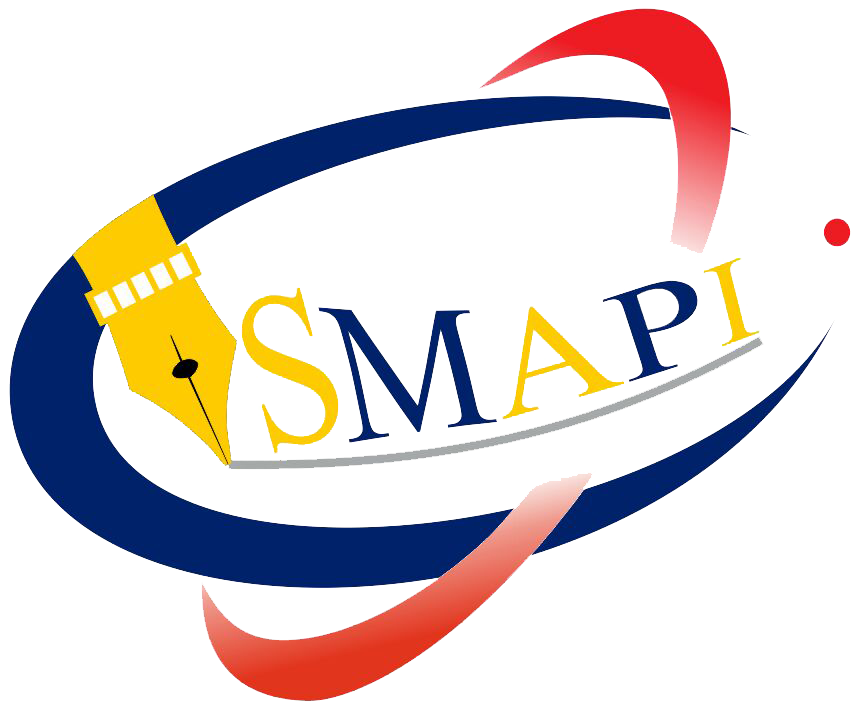AN EVALUATION OF THE IMPLEMENTATION OF EARLY CHILDHOOD EDUCATION 2013 CURRICULUM
DOI:
https://doi.org/10.22236/jkpuhamka.v4i1.7465Keywords:
Planning, Organizing, Implementation, 2013 Curriculum Children's Education Early ageAbstract
This study aims to evaluate the implementation of the 2013 PAUD curriculum related to planning, organizing, and implementation. The research was conducted at TKIT Nurul Izzah, located in Depok, West Java, using a discrepancy evaluation model consisting of six steps. Data collection was carried out by observation, structured interviews, and documentation. The results showed that 1) in terms of planning, the discrepancy was that there was no explanation regarding the curriculum used and the modifications made to the curriculum in the guidelines for the preparation of the curriculum at the educational unit level; 2). In terms of organizing, the discrepancy was that including the allocation of time / study load used exceeds the specified minimum standard, namely 1350 minutes per week; and 3) in terms of implementation, the discrepancy was that only the school committee know the vision, mission and objectives of education. However, semester, weekly, and daily planning has followed the regulation of the minister of education and culture Number 146 of 2014, documentation has also been included in the curriculum document, the learning methods have varied, the assessment techniques and instruments have followed the rules, and the learning outcomes report has a description and follow the existing rules. Thus, it can be concluded that the implementation of the 2013 early childhood educationcurriculum has gone quite well with the need for improvement in several parts, especially in the planning section.
Downloads
References
Agnihotri, S. (2018). The Importance of Early Childhood Education for a Sustainable Society: A Sociological Analysis. NRJP Journals 2018.Nrjp.Co.in Journal of Bank Management &Financial Strategies, 2(3), 3–26.
Bradekamp S. (1997). Developmentally appropriate practice in early childhood programs.
Washington: NAEYC.
Claire McLachlan, Marilyn Fleer, S. E. (2010). Early Childhood Curriculum. New York: Cambridge University Press.
Dere, Z. (2019). Investigating the creativity of children in early childhood education institutions. Universal Journal of Educational Research, 7(3), 652–658. https://doi.org/10.13189/ujer.2019.070302
File, N., Mueller, J. J., & Wisneski, D. B. (2012). Curriculum in early childhood education: Re- examined, rediscovered, renewed. In Curriculum in Early Childhood Education: Re-Examined, Rediscovered, Renewed. https://doi.org/10.4324/9780203804360
Gall, M. D., Gall, J. P., & Borg, W. R. (2007). Educational research: An Introduction. (Eighth Edi).
Boston: Pearson/Allyn & Bacon.
Hasibuan, H. B., Ramadhani, W. R., & Lubis, Z. (2020). Pengaruh penerapan pembelajaran tematik terhadap perkembangan sosial anak usia 5-6 tahun di RA Al-Barkah Cinta Rakyat. Jurnal Raudhah, 8(1), 24–33.
Hattie, J. (2009). Visible learning: A synthesis of over 800 meta-analyses relating to achievement.
London, England: Routledge.
Karyani, S. (2019). Implementasi Kurikulum 2013 EARLY CHILDHOOD EDUCATION di TK PKK Palur Mojolaban Sukoharjo. Universitas Muhammadiyah Surakarta.
Lestari, P. I., & Prima, E. (2019). Educational tour in Denpasar traffic park for early childhood.
Proceedings I-CFAR, (October), 319–323.
Megersa, A. K., & Tarekegne, W. M. (2019). Preschool curriculum implementation in ethiopia: The case of selected woredas preschools. Cypriot Journal of Educational Sciences, 14(2), 178–189. https://doi.org/10.18844/cjes.v14i2.3882
Ndeot, F. (2019). Pentingnya Pengembangan Kurikulum di EARLY CHILDHOOD EDUCATION. Jurnal Lonto Leok Pendidikan Anak Usia Dini, 2(1), 30–36.
Rahelly, Y. (2018). Implementasi kurikulum 2013 Pendidikan Anak Usia Dini (EARLY CHILDHOOD EDUCATION) di Sumatera Selatan. Jurnal Pendidikan Anak Usia Dini, 12(November), 381–390. https://doi.org/DOI: https://doi.org/10.21009/JPUD.122 DOI:
Roziqin, Z. (2019). Menggagas Perencanaan Kurikulum Sekolah Unggul. As-Sabiqun, 1(1), 44–56. https://doi.org/10.36088/assabiqun.v1i1.161
Suardi, S., & Samad, S. (2020). Stimulation of the Early Childhood Language Development: Optimalization of a Mother'S Role in Family Education. RETORIKA: Jurnal Bahasa, Sastra, Dan Pengajarannya, 13(1), 196. https://doi.org/10.26858/retorika.v13i1.12300
Varkey, P., Peloquin, J., Reed, D., Lindor, K., & Harris, I. (2009). Leadership curriculum in undergraduate medical education: A study of student and faculty perspectives. Medical Teacher, 31(3), 244–250. https://doi.org/10.1080/01421590802144278















